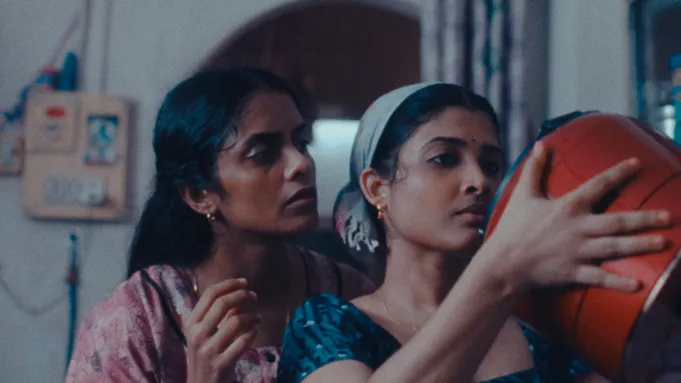Filmmaker Payal Kapadia made history on Saturday as she became the first Indian to reel in the prestigious Grand Prix at the 77th Cannes Film Festival, second only to the Palme d’Or, which was bagged by American director Sean Baker for Anora.
Kapadia’s film “All We Imagine As Light” is a drama that centres three Malayali nurses, Prabha (Kani Kusruti), Anu (Divya Prabha) and Parvathy (Chhaya Kadam) as they navigate love, life and sisterhood in the megapolis that is Mumbai, which seems to have a surplus of all three. In Kapadiya’s own words, this film, more than anything, is about friendship. “When we move away from our families, or the place that we grew up, and we have to move to a different city, our friends become our family right? But friendship is a kind of relationship that has no definition,” she stated in an interview with Sucharitra Tyagi. “I wanted to make a film about friendship as a new way of thinking about family because family can also bind you, in a way, and friendships, perhaps, can free you from those binds,” she elaborated.
A win for All We Imagine as Light is especially remarkable as it marks the feature directorial debut of Kapadia, an alumnus of the Film and Television Institute of India. Previously, her acclaimed documentary A Night of Knowing Nothing has also premiered at Director’s Fortnight stream in 2021 at the Cannes Film Festival, earning the prestigious Oeil d’or (Golden Eye) award.
Kapadia’s talent was also evident in her short film Afternoon Clouds, which was showcased in Cinefondation, a category that champions the rising voices in the world of filmmaking.
“It was already a dream to be selected in competition and this was beyond my imagination, so thank you” Kapadia said in her acceptance speech, turning to the Cannes’ jury, which this year includes director Greta Gerwig and Hirokazu Kore-eda and actor Lily Gladstone.
Kapadia acknowledged the fact that her film was the first Indian movie to compete in the main competition of Cannes in the last thirty years. “Please don’t wait another thirty years to have an Indian film,” she said in her acceptance speech, invoking a few chuckles from the audience. The last Indian film to be nominated for the main competition was the 1999 Malayali drama Marana Sinhasanam (The Throne of Death) directed by Murali Nair, which was inspired by India’s first execution by electric chair. The film was screened in the Un Certain Regard Section where it won the Camera d’Or (Golden Camera) award.
2024 was by far one of the most successful years for Indian cinema at Cannes, with two other Indian filmmakers winning big. FTII student Chidananda S Naik bagged the first prize for La Cinef Award for Best Short with his film Sunflowers Were the First Ones to Know, a course end film for the student. Another victory for India comes in the form of Konstantin Bojanov’s movie The Shameless, for which Anasuya Sengupta was awarded the Best Actress, in the Un Certain Regard section of the competition.
This nomination came as a surprise to Kapadiya who previously expected her film to be nominated for the less glamorous Un Certain Regard section, however, in an interview with Sucharitra Tyai, she later revealed that an email sent to her on the previous night upgraded them directly to the second most illustrative category. In a word with Brut India, Kapadiya describes her reaction upon receiving the immense honour. “We had no expectation that the film would be in competition. It’s not a very big film and when we found out, I was very happy and nervous and privileged that the film would get the kind of exposure that Cannes gives it”, she stated.
